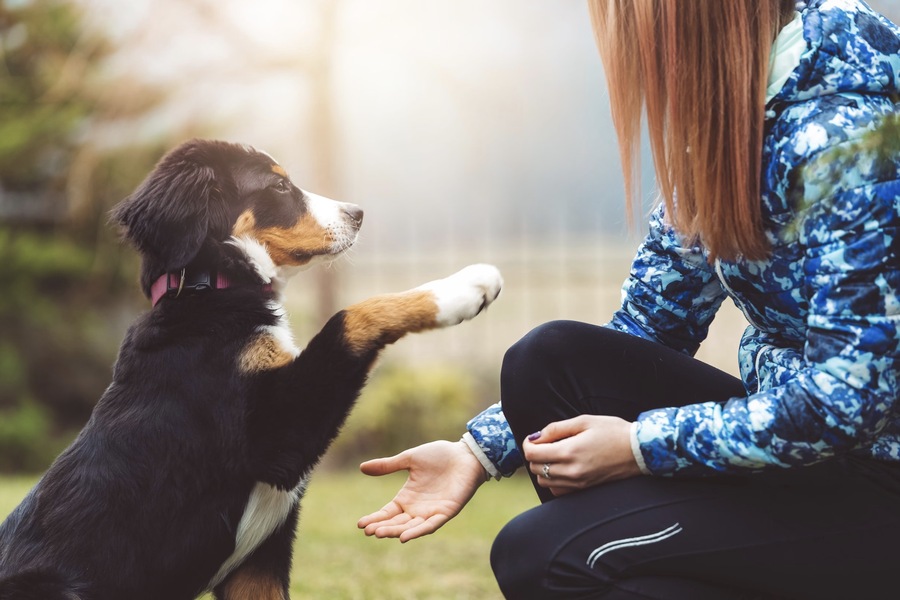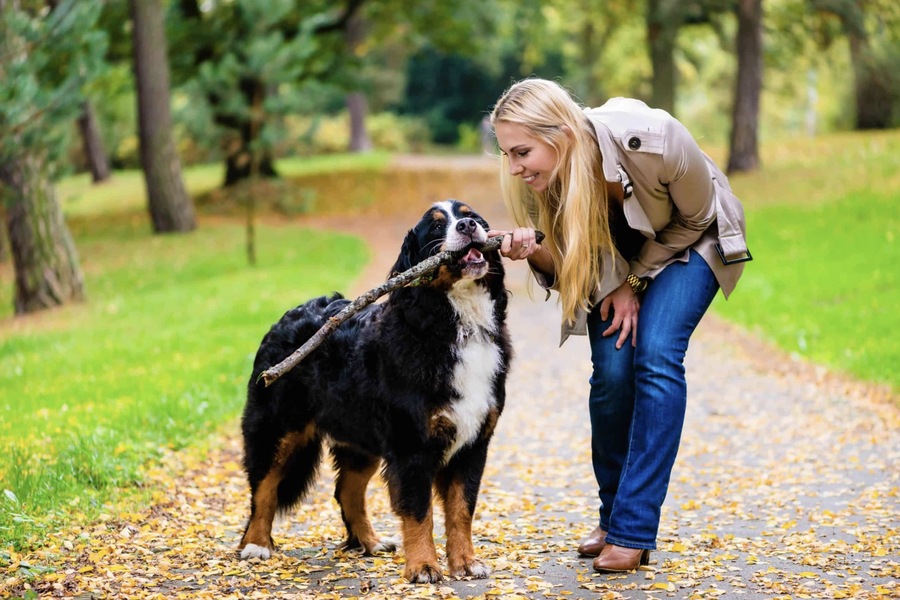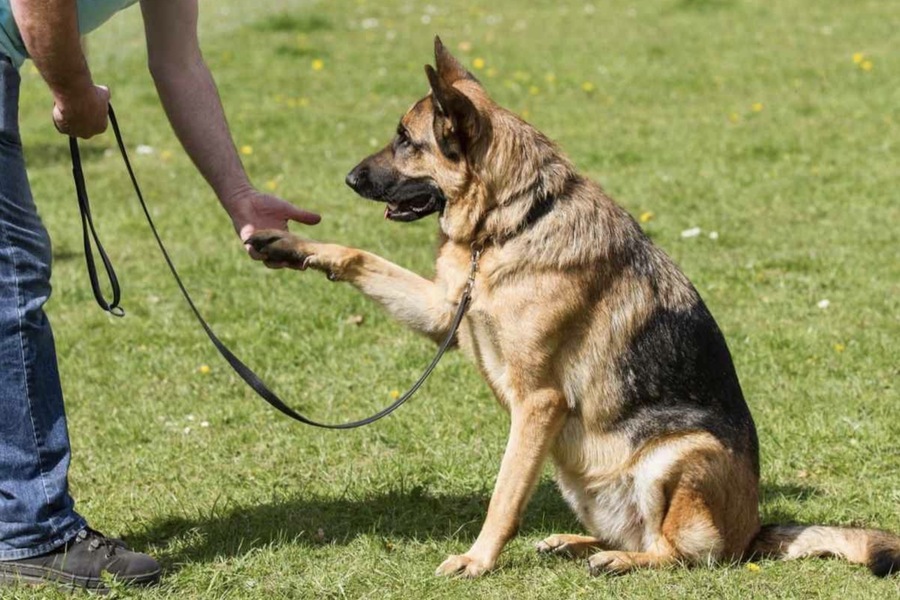
Pet boarding is a practical solution for pet owners who need to travel or manage extended absences. However, it’s not uncommon for pets to exhibit changes in behavior after returning home. Understanding what is normal and what might indicate a problem is essential for ensuring your pet’s well-being. This article will explore various aspects of pet behavior post-boarding, helping you discern between typical adjustments and signs that require attention.
Temporary Changes in Eating Habits
One of the most common behaviors observed in pets after boarding is a change in eating habits. Your pet might eat less or more than usual upon returning home. This is generally a temporary adjustment as your pet reacclimates to their familiar environment.
Why Does This Happen?
Changes in environment and routine can affect a pet’s appetite. While in the boarding facility, your pet may have experienced stress or excitement, both of which can impact eating patterns. Additionally, if the food provided during boarding was different from what your pet is accustomed to, their digestive system might take some time to readjust.
What’s Normal?
It’s typical for pets to have a reduced appetite for a day or two after returning home. However, if the lack of appetite persists beyond a few days, or if your pet refuses to eat altogether, it may indicate a more serious issue, such as illness or stress.
Increased Sleep and Rest
Another behavior often noticed is an increase in sleep and rest. Pets might seem more tired than usual after boarding, which can be a normal reaction to the stimulation and activity they experienced while away.
Why Does This Happen?
Boarding facilities are usually bustling environments with various sounds, smells, and activities. This constant stimulation can be exhausting, particularly for pets that are not used to such an environment. Additionally, some pets may not sleep as soundly in a boarding facility due to unfamiliar surroundings.
What’s Normal?
Increased sleep for a few days is normal as your pet catches up on rest. However, if your pet remains lethargic for an extended period or shows signs of extreme fatigue, it could be a sign of stress, illness, or other underlying health issues.

Clinginess and Separation Anxiety
Upon returning from boarding, some pets may exhibit clingy behavior, seeking constant attention and not wanting to be left alone. This behavior is often a sign of separation anxiety, which can be exacerbated by the experience of being away from their owner.
Why Does This Happen?
Pets form strong bonds with their owners, and separation can cause anxiety. The boarding experience, especially if it was their first time or if they were away for an extended period, can heighten this anxiety. Your pet may fear being left alone again and thus seek more reassurance and attention from you.
What’s Normal?
A certain level of clinginess is normal after boarding, particularly in the first few days. To help ease this anxiety, gradually reintroduce your pet to being alone by leaving them for short periods and then slowly increasing the duration. If the clinginess persists or if your pet displays destructive behavior when left alone, it may be necessary to consult with a veterinarian or a pet behaviorist.
Increased Vocalization
Increased vocalization, such as barking, whining, or meowing, is another behavior that some pets might exhibit after boarding. This could be a response to the stress of being away or an attempt to communicate their experience.
Why Does This Happen?
Pets use vocalization to express their emotions and communicate with their owners. After the potentially stressful experience of boarding, your pet may have a lot to “say” about their time away. This vocalization could also be a sign of discomfort or an attempt to regain your attention.
What’s Normal?
A temporary increase in vocalization is generally normal, especially if it gradually decreases as your pet settles back into their routine. However, if your pet’s vocalization becomes excessive or is accompanied by other signs of distress, it could indicate unresolved stress or health issues that may require professional attention.
Changes in Bathroom Habits
Another behavior to monitor is any change in your pet’s bathroom habits. Some pets may have accidents in the house, while others might have difficulty adjusting back to their regular bathroom schedule.
Why Does This Happen?
Boarding can disrupt a pet’s regular bathroom routine due to changes in their environment, feeding times, and stress levels. If your pet was in a kennel or indoor environment, they might also have had to adapt to different bathroom conditions, such as using pee pads or being taken out at different intervals.
What’s Normal?
A few accidents or irregular bathroom habits in the first couple of days after returning home can be expected. However, if these changes persist or if your pet shows signs of discomfort while eliminating, it may be necessary to consult your veterinarian to rule out any medical issues.
Regressive Behavior
Some pets may display regressive behavior after boarding, such as a return to behaviors they had outgrown, like chewing on furniture, jumping on people, or barking excessively.
Why Does This Happen?
Stress and anxiety from being in a new environment can cause pets to revert to behaviors they displayed when they were younger or less trained. This regression can also be a way for your pet to cope with the anxiety or confusion they felt during their time away from home.
What’s Normal?
A temporary regression in behavior can be normal, but it’s important to address these behaviors quickly to prevent them from becoming habitual. Reinforcing training and providing consistent routines can help your pet readjust. If the regressive behavior continues, it may be necessary to seek advice from a professional trainer or behaviorist.
Changes in Social Behavior
Some pets may act differently around other animals or people after boarding. They might be more timid, aggressive, or overly excited when interacting with others.
Why Does This Happen?
During their stay at the boarding facility, your pet was likely exposed to other animals, some of which they may not have been comfortable around. These interactions can impact their social behavior once they return home. Additionally, the stress of being in a new environment can affect how they interact with people and other pets.
What’s Normal?
It’s normal for pets to be a bit more reserved or cautious after boarding, especially in the first few days. However, if your pet displays aggressive behavior or becomes fearful of social interactions, it could indicate lingering stress or anxiety that needs to be addressed with the help of a professional.
Disorientation or Confusion
Disorientation or confusion is another behavior some pets may exhibit after returning from boarding. This could manifest as your pet wandering around the house, appearing unsure of their surroundings, or having difficulty settling back into their routine.
Why Does This Happen?
Being in an unfamiliar environment for an extended period can disorient pets, especially if their routine at the boarding facility was significantly different from what they’re used to at home. The change in environment, smells, and sounds can be overwhelming, leading to temporary confusion.
What’s Normal?
Mild disorientation that resolves within a day or two is generally normal as your pet reacclimated to their home environment. However, if your pet remains disoriented or if the behavior worsens, it could be a sign of an underlying health issue, such as a neurological condition, that requires veterinary attention.

Unusual Aggression or Irritability
Some pets may exhibit aggression or irritability after boarding, which can be surprising if they’re usually well-behaved and friendly. This behavior might be directed towards other pets, people, or even objects.
Why Does This Happen?
The stress of boarding, coupled with the exposure to unfamiliar animals and environments, can lead to feelings of insecurity or fear, which may manifest as aggression. Additionally, if your pet had any negative experiences at the boarding facility, such as conflicts with other animals, they might be more defensive upon returning home.
What’s Normal?
Mild irritability or defensiveness that diminishes as your pet readjusts to their home is generally normal. However, ongoing or severe aggression should be addressed immediately, as it could indicate deeper psychological or health issues. Consulting with a veterinarian or animal behaviorist is recommended in such cases.
Persistent Signs of Stress or Anxiety
Lastly, it’s important to watch for any persistent signs of stress or anxiety in your pet. These can include panting, pacing, whining, excessive grooming, or avoiding interaction.
Why Does This Happen?
While many pets adjust quickly after boarding, others may take longer to recover from the stress of being away from home. The separation from their owner, unfamiliar surroundings, and interactions with other animals can all contribute to ongoing stress or anxiety.
What’s Normal?
Some level of stress is expected after boarding, particularly if it was your pet’s first experience or if they were away for an extended period. However, if signs of stress persist for more than a few days or worsen over time, it’s crucial to seek professional advice. Prolonged stress can lead to more serious behavioral or health issues that require intervention.
Conclusion
Understanding your pet’s behavior after boarding is key to ensuring their continued well-being. While some changes in behavior are normal as your pet readjusts to their home environment, it’s important to recognize when these behaviors might indicate a problem. By being observant and responsive to your pet’s needs, you can help them transition smoothly back to their routine. If you have concerns about your pet’s behavior after boarding, consulting with a veterinarian or a pet behaviorist can provide valuable insights and guidance.

Cyclist, hustler, music blogger, Eames fan and critical graphic designer. Acting at the fulcrum of aesthetics and function to craft experiences both online and in real life. I prefer clear logic to decoration.
